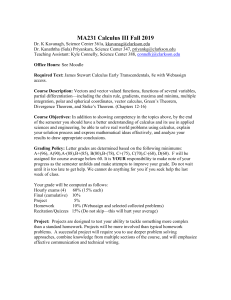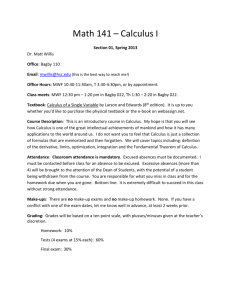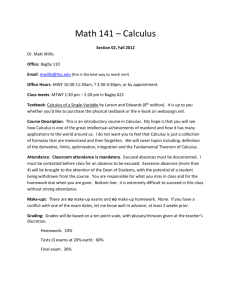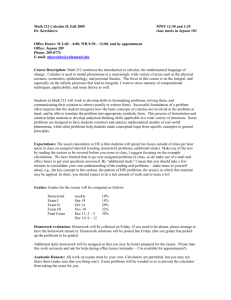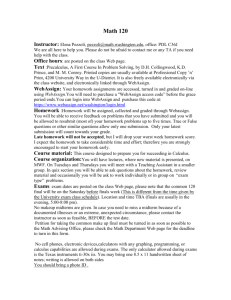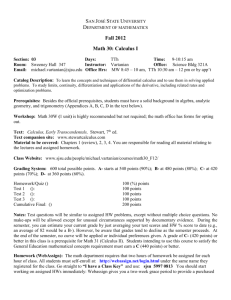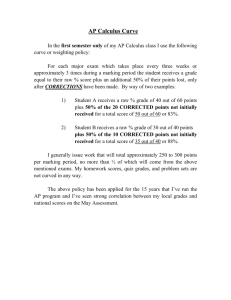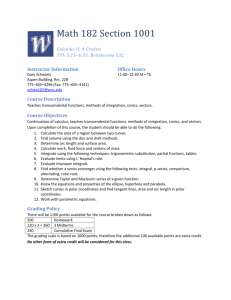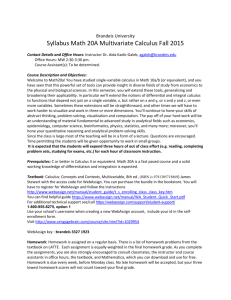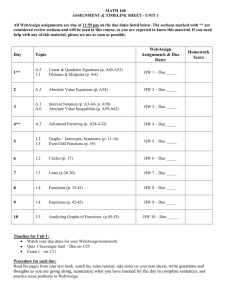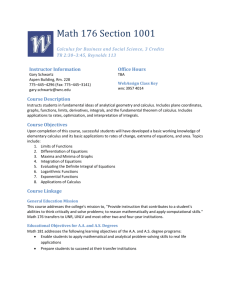MA231 Calculus III Spring 2005
advertisement
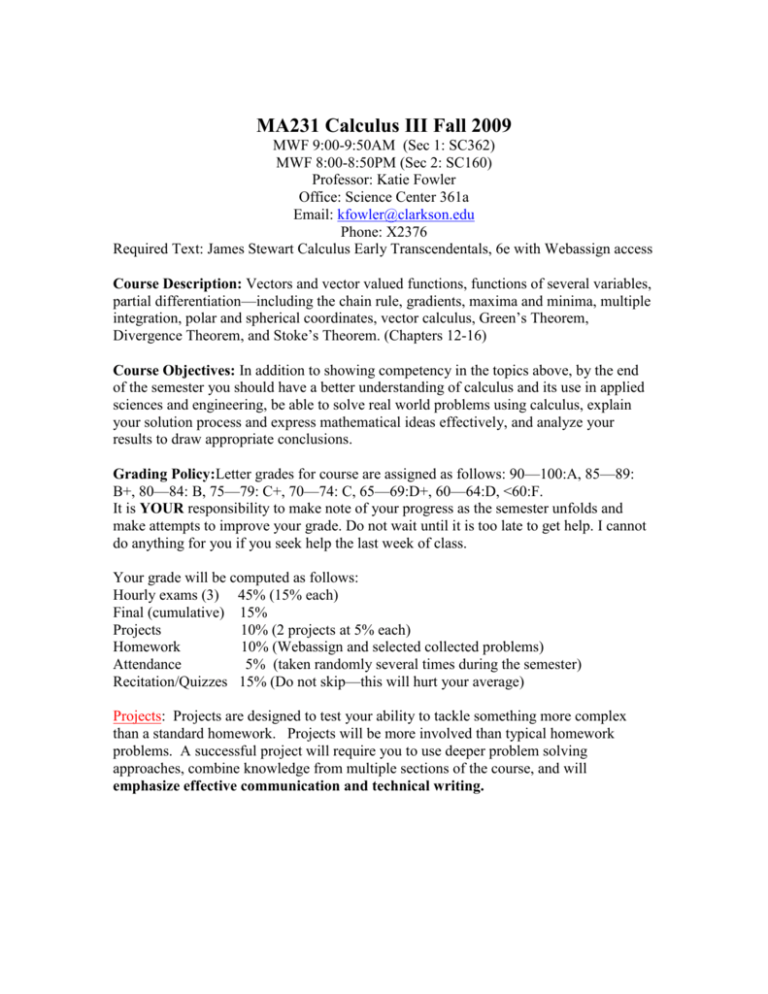
MA231 Calculus III Fall 2009 MWF 9:00-9:50AM (Sec 1: SC362) MWF 8:00-8:50PM (Sec 2: SC160) Professor: Katie Fowler Office: Science Center 361a Email: kfowler@clarkson.edu Phone: X2376 Required Text: James Stewart Calculus Early Transcendentals, 6e with Webassign access Course Description: Vectors and vector valued functions, functions of several variables, partial differentiation—including the chain rule, gradients, maxima and minima, multiple integration, polar and spherical coordinates, vector calculus, Green’s Theorem, Divergence Theorem, and Stoke’s Theorem. (Chapters 12-16) Course Objectives: In addition to showing competency in the topics above, by the end of the semester you should have a better understanding of calculus and its use in applied sciences and engineering, be able to solve real world problems using calculus, explain your solution process and express mathematical ideas effectively, and analyze your results to draw appropriate conclusions. Grading Policy:Letter grades for course are assigned as follows: 90—100:A, 85—89: B+, 80—84: B, 75—79: C+, 70—74: C, 65—69:D+, 60—64:D, <60:F. It is YOUR responsibility to make note of your progress as the semester unfolds and make attempts to improve your grade. Do not wait until it is too late to get help. I cannot do anything for you if you seek help the last week of class. Your grade will be computed as follows: Hourly exams (3) 45% (15% each) Final (cumulative) 15% Projects 10% (2 projects at 5% each) Homework 10% (Webassign and selected collected problems) Attendance 5% (taken randomly several times during the semester) Recitation/Quizzes 15% (Do not skip—this will hurt your average) Projects: Projects are designed to test your ability to tackle something more complex than a standard homework. Projects will be more involved than typical homework problems. A successful project will require you to use deeper problem solving approaches, combine knowledge from multiple sections of the course, and will emphasize effective communication and technical writing. Homework: You learn Calculus by doing problems and so it is obvious to the instructors that HOMEWORK IS THE MOST IMPORTANT PART OF THE COURSE LEARNING. The homework strategy for this course is divided into three components: (1) Suggested homework will be posted on Blackboard daily. It is your responsibility to do these problems. The recitation quizzes will be closely related to the homework from the text, although that homework itself will not be graded—basically, you need to do it to pass. (2) WEBASSIGN, a web based homework question and grading will be used as the primary source of EVALUATING your understanding of basic exercise material. The questions are automatically graded, and the instructors will use these grades as a primary component to your homework score. The program will tell you if you are correct, and will give you several opportunities to fix any incorrect answers before it “locks out.” MORE INSTRUCTIONS ON WEBASSIGN WILL BE DISTRIBUTED VIA SEPARATE DOCUMENT. (3) Approximately once per week, your instructor will require you to submit SOLUTIONS to some selected problems of interest. A SOLUTION is not simply the answer, it is a complete explanation that clearly shows how the answer is determined. These submissions will be graded based on the quality of the SOLUTION, not simply the correctness of the answer. These grades, along with the grades from WEBASSIGN, will determine your overall score for HOMEWORK in this course. Exams : All exams are IN CLASS. You are allowed 50 minutes. Dates to be announced! Do not be late! Dates: Friday Sept 18, Wednesday Oct 14, Friday Nov 6, In-class quiz: Friday Nov 20 Attendance Policy: You need to attend class to learn the material so skip at your own risk. I will randomly take attendance and this will count as 5% of your grade. If you miss class, it is your responsibility to get the notes from a classmate. ACADEMIC INTEGRITY : "The Clarkson student will not present, as his or her own, the work of another, or any work that has not been honestly performed, will not take any examination by improper means, and will not aid and abet another in any dishonesty." (Clarkson Regulations)

